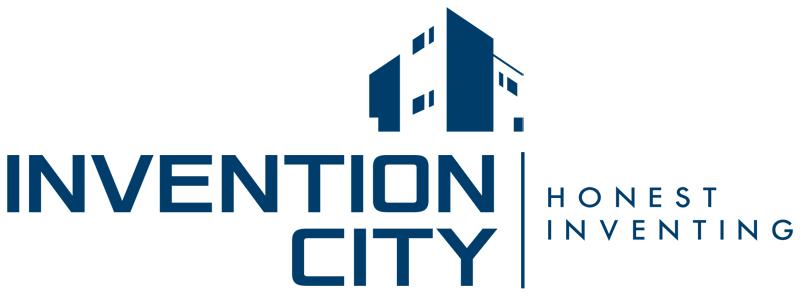A Trillion Dollar Idea

$1,000,000,000,000 = a million million dollars
Maurice Ward's Invention of Starlight might have been one.
Is a trillion dollar idea possible? Numbers can be hard to feel but we need to feel them to understand them. So, before moving on to answer the question, I want to try and give a feeling for what $1,000,000,000,000 feels like.
We live in extraordinary times. In 2014, according to Wikipedia and not counting kings, queens, sultans and dictators, 1,645 individuals in the world can be counted as having net worth of of one billion dollars or more ($1,000,000,000+). That's roughly twenty thousand times (20,000X) more than the $50,000 median net worth of an American household. In other words, if you went out to visit 100 random American homes, there would be 49 with a net worth above $50,000 and 49 with a net worth below $50,000.
Fifty thousand dollars is a number most of us can get our heads around. Our cars typically cost less than half that amount and our homes typically cost 2-3 times more. Feel that. Most of us know very well what $50,000 feels like.
Now consider what 20,000 times more than $50,000 feels like. That's the feeling of $1 billion. Even after the exercise above, I can't feel it. I can feel 200 or even 400 times more, a net worth of $10-$20 million. But feeling a billion dollars is beyond my reach. And $1 trillion is a thousand times more than that. No way.
So let's accept that it's hopeless to feel the meaning of $1,000,000,000,000 and move on anyway. Is it possible for someone to have a trillion dollar idea?
I think the answer is yes. In fact, twenty years ago, what might have been a trillion dollar idea landed on my desk. It was said to be a cure for atherosclerosis, a mixture of herbs developed by a "genius" of Chinese Medicine with the James Bondian name of Dr. Hu. Dr. Hu was referred to me by a good friend who believed Dr Hu's claim that his medicine would clean out and rejuvenate the arteries of a 70-year-old and make them like those of a 25-year-old. Do I think there are one billion people on this planet who could find a way to come up with $1,000 to eliminate the #1 risk factor for heart disease, the most common cause of death? You bet I do. And I trusted my friend's judgment about Dr. Hu.
So we went to work to try and test Dr. Hu's claims. There was a problem though. He wouldn't tell us what the ingredients were. It was impossible to write a non-disclosure agreement in a way that would satisfy him. If we paid him $1 million in advance he'd tell us, but not beforehand. And I wasn't about to pay him anything until his claims could be at least somewhat validated. A mentor, good friend and former hematologist, Dr. Gerald Belkin, told me the story of a Taiwanese doctor who claimed to have a cure for cancer. The Taiwanese doctor said he knew his cure worked because after giving his patients the medicine he never saw them again. Ba dum dum.
Other doctor friends told me to walk away. They said the odds of Dr. Hu's medicine being real were miniscule. I told them that even if the odds were less than 1% it was worth a few thousand dollars to do an initial test. I explained the math. In economic theory a 1% chance of $100,000,000 (a mere $100 million - I was holding myself back) is worth a real $1million. A chance of 1/10th of a percent would be worth a real $100,000. Surely I could bet $5,000 to find out if this might go anywhere. If a first test was positive the odds would get better and more money could be reasonably bet on further testing. Eventually we'd have enough positive test data to get someone serious interested. That was the plan.
After much haggling and no money paid in advance, we settled on doing a test with rabbits at a lab in Taiwan. Twenty one bunnies were fed a high fat diet to put some junk in their arteries. Then 15 were fed different dosages of Dr. Hu's miracle cure and five were left as controls. Then (I do feel bad about this) all of them were killed and their arteries examined. The result was that "maybe" something positive had happened. The "maybe" wasn't strong enough to pay Dr. Hu his $1,000,000 or even $10,000. But it was strong enough to consider the medicine further if Dr. Hu had revealed the ingredients to us under a Confidentiality Agreement. He refused and the project ended. Maybe he did have something phenomenal worth tens, hundreds, even thousands of millions of dollars. But because he refused reasonable deal terms, we'll never know and a product that might have made him unbelievably rich and saved the lives of millions, will never be on the market.
In this way Dr. Hu was somewhat similar to Maurice Ward, the inventor of a truly miraculous material he called Starlight. Mr. Ward claimed that Starlight could protect people and things from extreme heat, possibly even the heat of a nuclear blast. Unlike Dr. Hu, Mr. Ward had strong evidence to back up his claim. Starlight might well have been a trillion dollar idea. But we'll never know. The secret to Starlight went to the grave with Mr. Ward in 2011. His reasons for not commercializing Starlight seem to have been about not wanting it used for military purposes. For that reason he wanted to have 51% control of the product and/or any company the product as licensed to. No business could agree to those terms so Starlight never came to be. You can learn more about Starlight and Maurice Ward in the video and at the links below:
Here's info Starlight from Wikipedia: http://en.wikipedia.org/wiki/S...
share this article: facebook